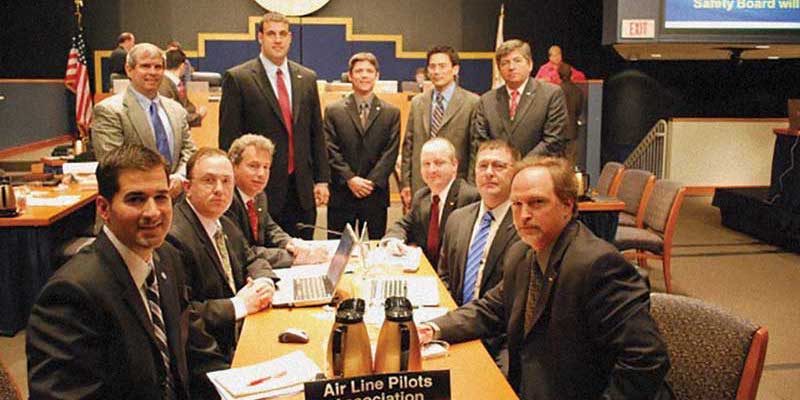Leadership From the Flight Deck
8 Results for Tag FO Qualifications
For more than 80 years, the Air Line Pilots Association (ALPA) has advanced aviation safety and security on behalf of pilots, crewmembers, and the flying public. During the early days of air travel, pilots lacked many basic safety provisions. That’s why ALPA’s founder and first president, Capt. Dave Behncke, brought pilots together with one goal in mind—to advance aviation safety. And that goal remains the core of our mission today. ALPA is the largest airline pilot union in the world, growing to more than 63,000 #TrainedforLife pilots at 35 airlines in the United States and Canada.
For the aviation industry, February 12 serves as an annual reminder of why airline pilots are committed to lifelong training to keep flying safe. This day marks 10 years since the Colgan Air Flight 3407 tragedy, which became a watershed for aviation safety improvements.
For airline pilots, February 12 serves as a constant reminder of the importance of aviation safety. Although it’s been nine years since the Colgan Air Flight 3407 tragedy, the gravity of the crash has not diminished—our collective grieving continues and our passion for the safety of our skies has only grown.
Flight 3407 had a profound impact on our industry and, in its aftermath, positive changes in aviation safety emerged. ALPA was an early leader in calling for the strengthening of pilot training and qualification requirements. Through collective efforts with other aviation safety advocates, Congress enacted the Airline Safety and Federal Aviation Administration Extension Act of 2010.
With the legislative clock ticking and time running out, Washington, D.C., special interests like the Regional Airline Association are in overdrive trying to persuade Congress to put profits ahead of safety in the FAA reauthorization. Unfortunately for airline passengers, these lobbying efforts could threaten the unparalleled record of safety the United States has enjoyed since passage of the Airline Safety and FAA Extension Act of 2010, which improved airline pilot training, qualification, and flight-experience requirements.
No one is more committed to ensuring we have enough qualified and experienced pilots to keep commercial aviation safe than the Air Line Pilots Association. The good news is that we currently have more fully qualified pilots in the United States than there are positions available, and air travel is the safest mode of transportation in the world due to our commitment to schedule with safety. However, we do need to make sure we have an adequate future supply of qualified pilots – earning good salaries – and guard against efforts to reduce safety, especially as it relates to pilot training and qualifications. That’s why the Air Line Pilots Association has worked for many years to mentor and inspire the next generation of pilots and advocate for loan forgiveness programs and other incentives to make it more affordable to become an airline pilot. .



